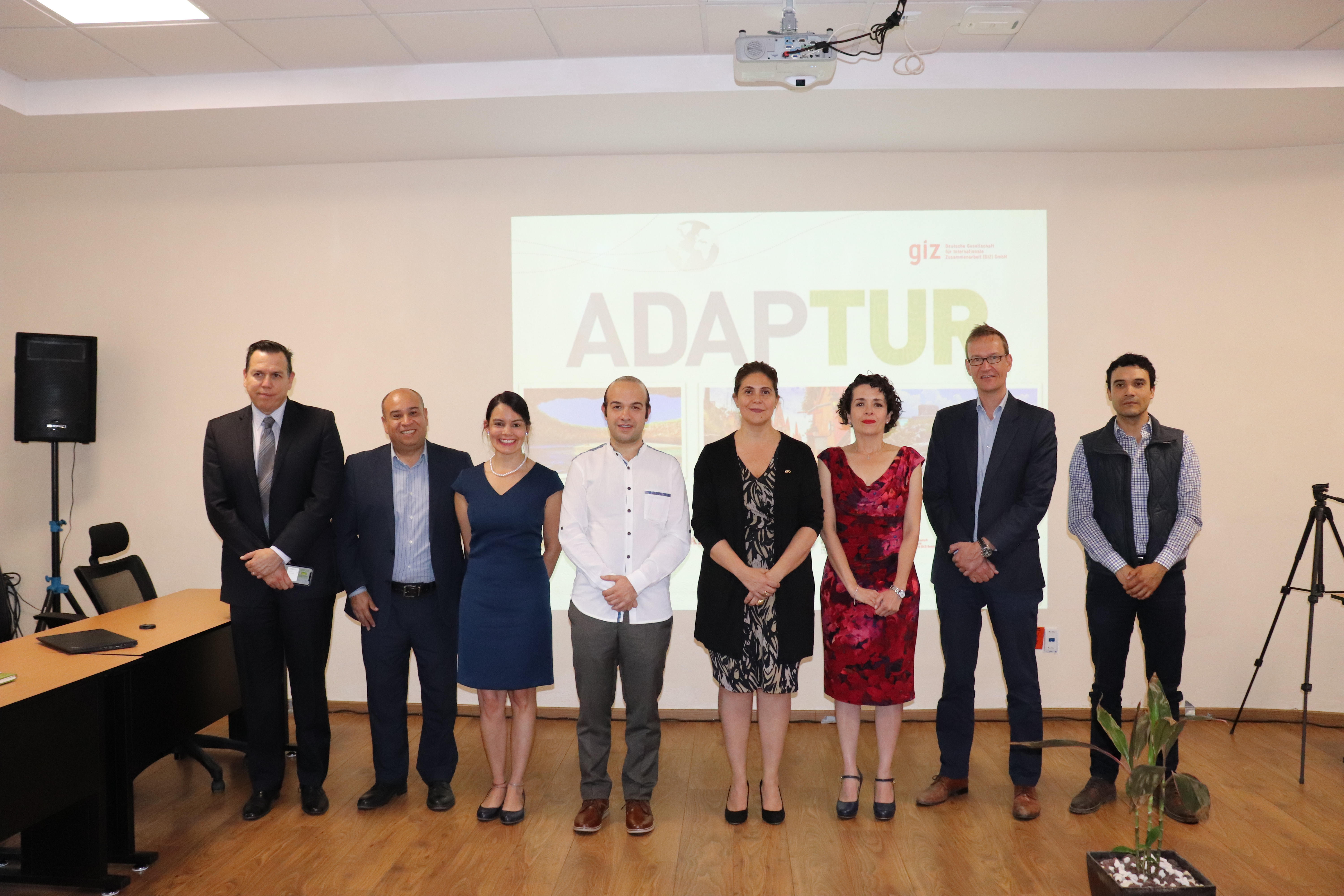

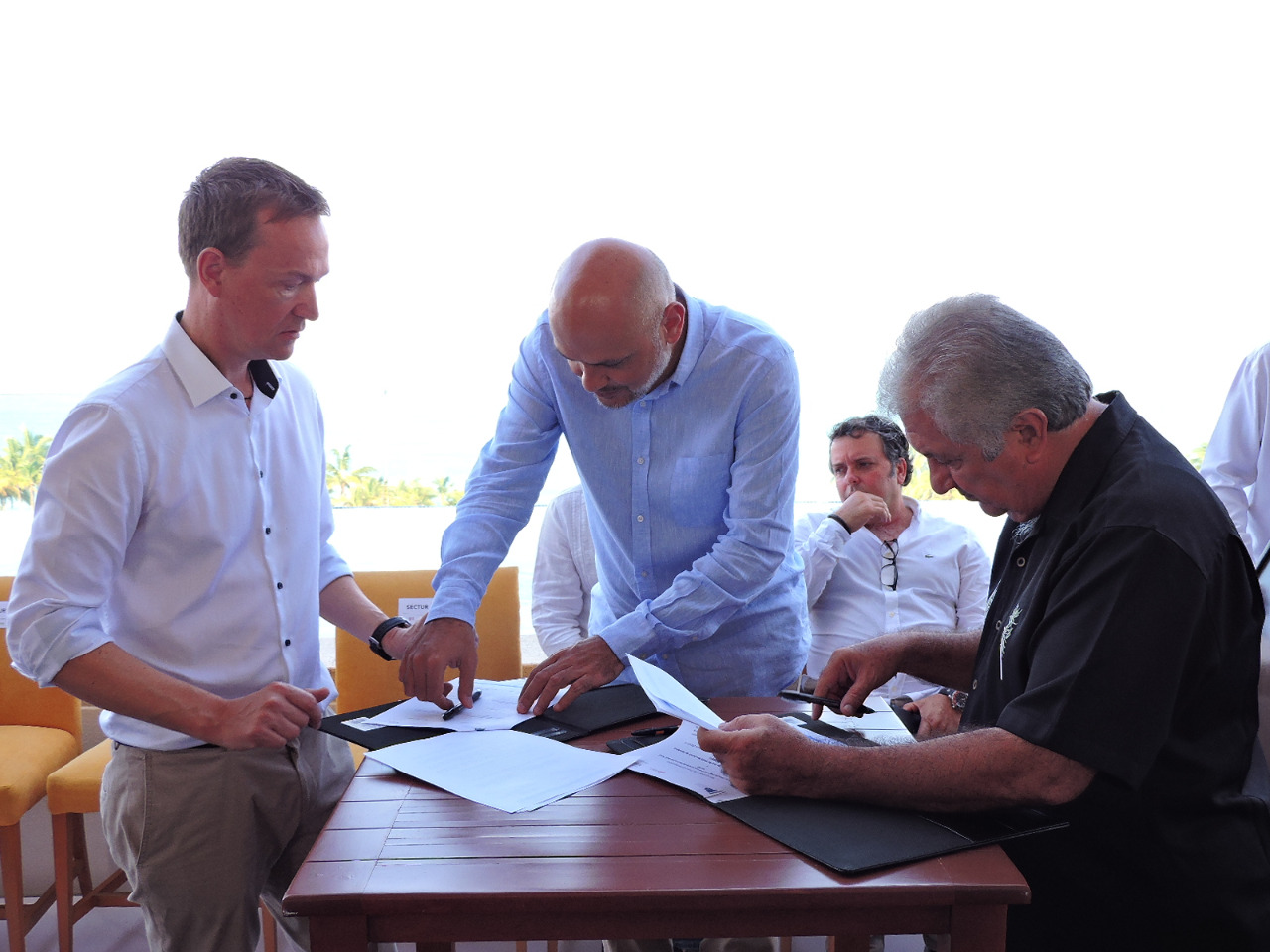
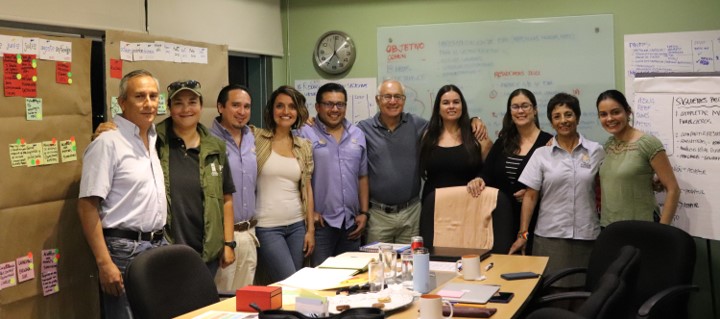
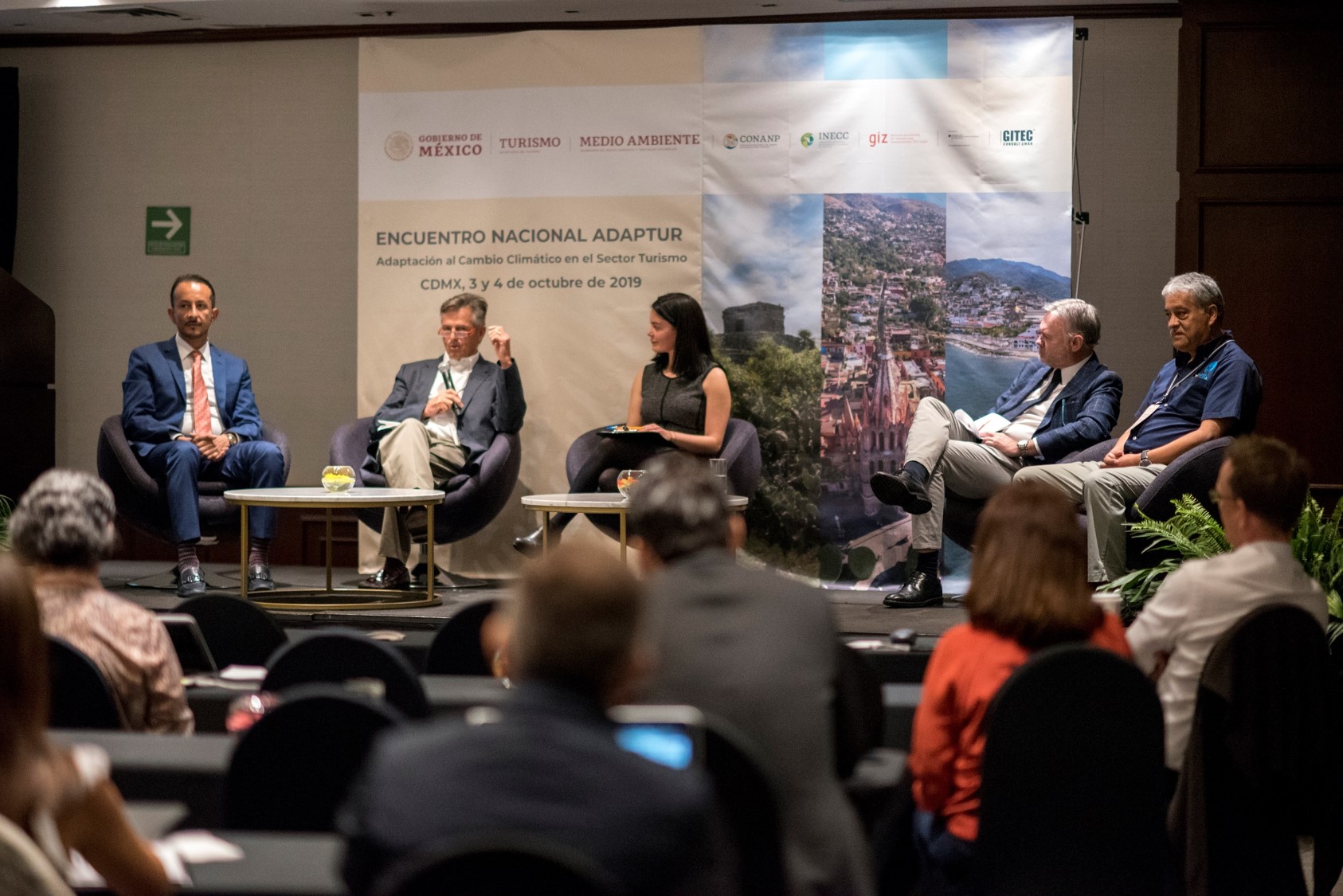
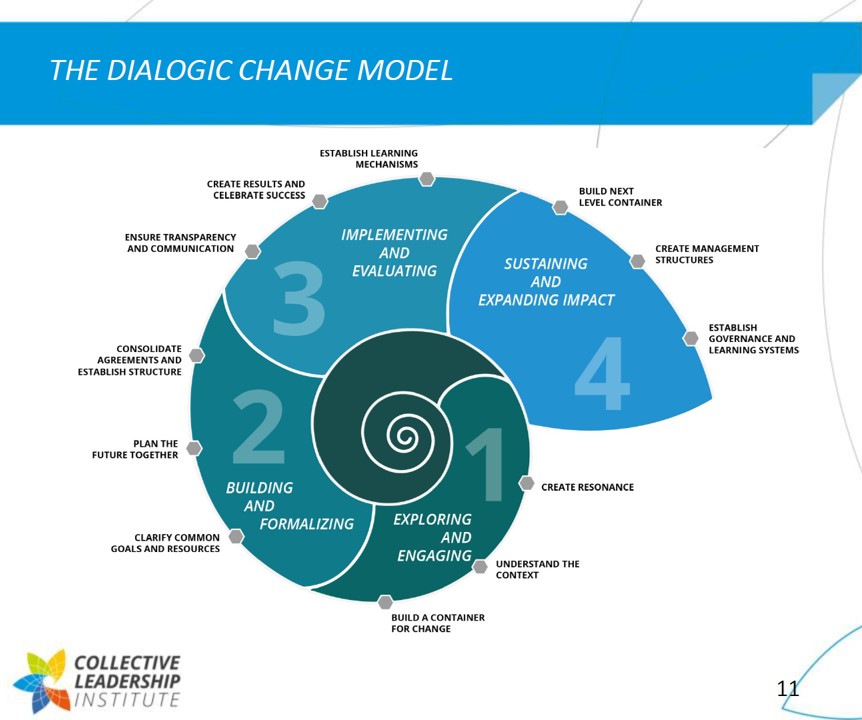
L'adaptation au changement climatique est un processus de changement et de transformation complexe qui nécessite une bonne coopération et une bonne coordination entre le secteur privé et le secteur public, qui ont généralement des conceptions, des priorités et des cultures de travail différentes. Dans de nombreux cas, il existe même des antécédents de tentatives de coopération infructueuses et un sentiment sous-jacent de méfiance ou de préjugé. Pour surmonter ces obstacles et mettre en place une structure de coopération solide entre ses homologues, ADAPTUR a suivi le modèle de leadership collectifde l'Institut de leadership collectif de Potsdam, en Allemagne.
Ce modèle conçoit le changement comme un processus plus long comportant plusieurs phases et comprend des éléments clés tels que la création d'une vision commune, la mise en place de structures de coopération, la consolidation des accords et la mise en œuvre de mécanismes d'apprentissage. Le résultat a été l'intégration de petits groupes d'agents de changement bien sélectionnés des secteurs privé, public et social (appelés "conteneurs") qui soutiennent fermement le changement envisagé, agissent en tant que premiers acteurs et, ultérieurement, motivent d'autres acteurs du secteur à se joindre à l'initiative ou au mouvement.
- Compréhension approfondie des questions, des positions et des relations entre les principales parties prenantes, ainsi que de leur histoire et de leurs expériences passées dans le cadre de processus similaires.
- Capacité à agir en tant qu'agent neutre et facilitateur capable de jeter des ponts entre les différents groupes de parties prenantes et les institutions.
- Créer une vision de l'avenir qui soit partagée et soutenue par les différentes parties prenantes du projet (par exemple, les chefs d'entreprise, les représentants du gouvernement, les dirigeants de la société civile, les experts universitaires).
- Capacité à gagner la confiance de leaders sectoriels importants et à les convaincre de promouvoir le projet.
- L'instauration d'une relation de confiance avec le secteur privé est un processus de longue haleine qui requiert sensibilité et patience. Travailler avec des chefs d'entreprise en tant qu'agents de changement peut être une excellente stratégie pour gagner la confiance et initier un processus de changement "de l'intérieur". Par exemple, le conseiller régional d'ADAPTUR a aidé à créer des relations en facilitant les réunions entre l'industrie du tourisme, les organisations environnementales et la société civile.
- Les données scientifiques sont très importantes pour monter un dossier d'adaptation. Mais en tant qu'êtres humains, nous sommes également inspirés, émus et motivés par les émotions. Dans ADAPTUR, nous avons beaucoup travaillé avec des photos, des vidéos et des histoires pour créer un lien émotionnel avec le projet.
- Le succès est peut-être le facteur de motivation le plus fort. Il est important de remporter des victoires rapides dès le début de la coopération et de célébrer des succès plus modestes avec les partenaires du projet et le groupe cible.
- Le changement est un voyage. Tenez les acteurs informés et intéressés (bulletins d'information, communication des meilleures pratiques, dialogues intersectoriels, ateliers) et célébrez vos réussites.